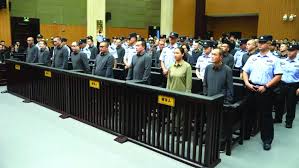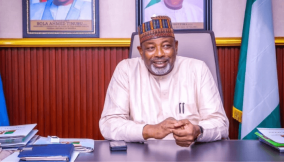Centre for the Promotion of Private Enterprise (CPPE) has urged the Federal Government to back Nigeria’s recent economic rebound with structural reforms that will translate growth into jobs, food security and poverty reduction.
The News Agency of Nigeria (NAN) reports that Nigeria’s economy expanded by 4.23 per cent in the second quarter, up from 3.13 per cent in the first quarter and higher than 3.48 per cent in Q2 2024.
Chief Executive Officer of CPPE, Dr Muda Yusuf, in a statement on Saturday in Lagos, said the performance showed that the economy was “not only on a recovery trajectory but also gaining traction, in spite of lingering structural and macroeconomic challenges”.
Yusuf said the oil and gas sector was the driver of the recovery, growing by 20.46 per cent compared to 1.87 per cent in first quarter of the year.
“This surge reflects the impact of policy reforms, governance overhaul at NNPC, and favourable market conditions.
“It is a remarkable outcome that has given the economy a much-needed boost,” he said.
He cautioned, however, that the oil sector still accounted for just 4.05 per cent of GDP, stressing the need to accelerate growth in non-oil sectors for inclusive development.
The CPPE chief noted that agriculture grew by 2.82 per cent, an increase from 0.07 per cent in first quarter.
According to him, due to input support programmes, favourable rainfall and state-led interventions.
“Yet, the sector still struggles with poor rural infrastructure, low mechanisation, weak access to finance, and insecurity challenges.
“Unless these constraints are addressed, agriculture will not deliver on its full potential for food security, employment and raw material supply,” Yusuf said.
On industry, Yusuf highlighted that manufacturing slowed to 1.60 per cent because of high production costs, logistics inefficiencies and FX volatility.
“Within industry, however, there are bright spots such as oil refining, where output jumped to 15.78 per cent, and construction, which though moderated to 5.25 per cent, still reflects ongoing infrastructure activity,” he added.
The services sector, which contributed 56.53 per cent to GDP, continued to anchor the economy.
“ICT remains a vital driver of digital transformation, financial services posted robust growth of 16.18 per cent, while aviation rebounded strongly with 6.34 per cent growth after a contraction in Q1,” Yusuf said.
He added that trade and real estate slowed due to weak consumer spending and affordability constraints.
Yusuf stressed that sustaining the recovery would require urgent reforms and consistent execution.
“Headline growth numbers will not mean much unless backed by policies that unlock productivity in sectors that touches the lives of most Nigerians,” he said.
He recommended five urgent interventions which include reduction in energy and logistics costs to improve competitiveness of manufacturers and agro-processors as wel as Accelerate infrastructure investment to unlock value chains in agriculture and industry.
Others are: expansion of access to affordable credit for MSMEs and farmers, promotion of local content and import substitution to reduce vulnerability to external shocks and strengthening of policy consistency and governance to build investor confidence.
The CPPE also identified “green shoots” in livestock production, which grew by 1.64 per cent after a sharp 16.69 per cent contraction in first quarter, and in coal mining, which posted a 57.53 per cent rebound.
“These signals show that with the right support, struggling sectors can recover and contribute meaningfully to growth,” Yusuf said.
He maintained that the second quarter was a clear statement that Nigeria’s economy was moving beyond stabilisation toward stronger recovery.
“However, to translate this momentum into jobs, poverty reduction and shared prosperity, government must unlock productivity in agriculture, manufacturing, construction, real estate and trade.
“With consistent reforms, improved governance and stronger private sector collaboration, Nigeria can transform its present growth momentum into a more resilient, inclusive and job-rich economy,” Yusuf said.






































